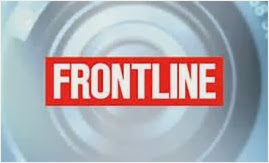I have been a big fan of PBS's Frontline for a long time now. I fell in love with Frontline sometime in the early 1990s if memory serves after I saw Ofra Bikel's superb dissection of the mania surrounding the witch hunt against the McMartin's who were accused of sexually molesting children and of satanic ritualism at their child care centre in California. Ever since I have watched Frontline religiously. It is one of those rare beasts on contemporary American television, a piece of critical investigative journalism that deifies few golden idols and educates its viewers.
Over its thirty year plus history Frontline has not always been without sin, however. I found the 1995 Frontline report "Waco: The Inside Story" far too accepting of the FBI version of the events at the Branch Davidian compound in Waco, Texas in 1993. Frontline's reporters in this episode seemed to have forgotten that it was the US government that set the events in motion that ended in the tragic and unnecessary deaths of 76 Davidian men, women, and children and, in a kind of perverse coda, the prosecution of several Branch Davidians who survived the deadly fire.
Recently I found another Frontline piece to be with sin as well, namely, 14 January 2014's "Secret State of North Korea". While I have no love for North Korea or its leader, Kim Jong-un I have long found a lot of the media coverage of North Korea, a nation former American president George Bush put in his "axis of evil" category, problematic. So much of this media coverage is grounded in an implicit manichean and melodramatic binary of us, the US, the West, Western democracies, good, North Korea, last of the nasty and brutish communist regimes that starves its citizens, bad.
Another problem with the Western coverage of North Korea, one that the "Secret State of North Korea" exhibits in spades is a lack of comparative perspective. So much of the Western media coverage of North Korea paints that nation-state as a kind of aloof and perverse dictatorship. A dictatorship, of course, North Korea is. The problem, however, is that dictatorships, particularly dictatorships like that in North Korea, are the modern day descendants and equivalents of divine monarchies, of arbitrary, brutish, and violent imperial houses justified and legitimised by the belief that the leader has the mandate of heaven in some way, shape, or form. This connection between monarchy and dictatorship, sadly, is one that Frontline seems unable to make for whatever reason.
Frontline over the years has provided American television with outstanding investigative reports. In my opinion Frontline is one of the finest shows that has ever appeared on American television. I only wish it would develop a sense of comparative history and comparative sociology. For if it did I might help its viewers understand the similarities between present human history and past human history.

No comments:
Post a Comment